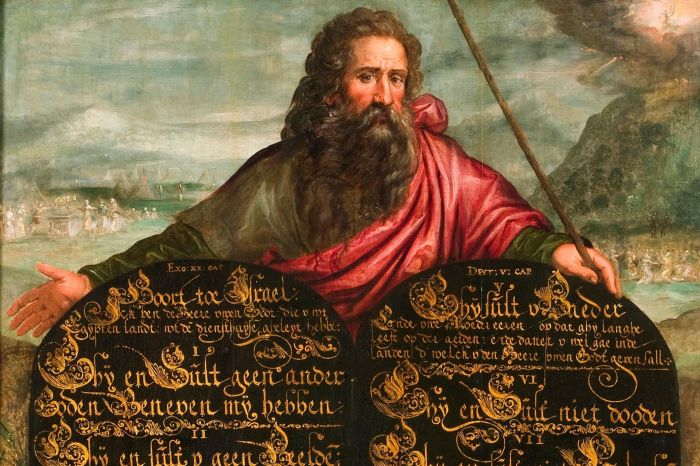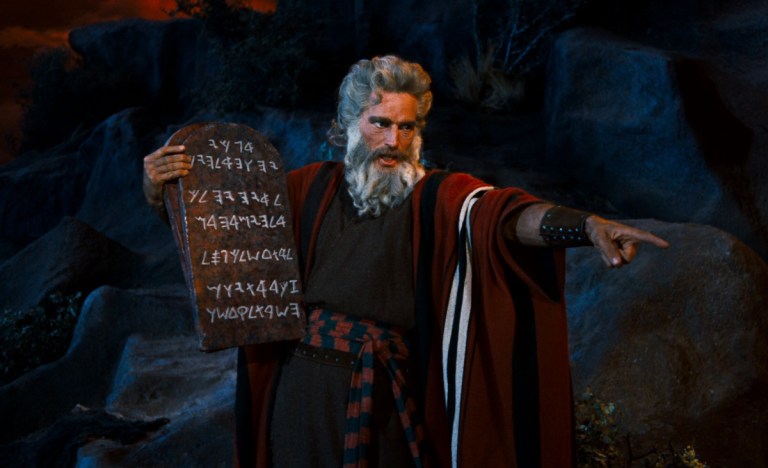Which pope changed the 2nd commandment – In the annals of Christianity, the alteration of the Second Commandment stands as a significant event, forever etching the name of Pope Gregory I into the fabric of religious history. This essay delves into the circumstances surrounding this pivotal change, exploring the motivations, consequences, and enduring legacy of Gregory’s decision.
Pope Gregory I, a towering figure in the Catholic Church, ascended to the papacy in 590 AD. During his tenure, he embarked on a mission to reform and codify Christian practices, including the Ten Commandments. It was under his guidance that the Second Commandment underwent a notable revision.
Which Pope Changed the Second ment?

The Ten ments, a cornerstone of Christian morality, have undergone a significant change in their wording over time. This article delves into the historical context, motivations, and impact of the alteration of the Second ment by Pope Gregory I.
Historical Context
The Ten ments, as recorded in the Bible, originated with God’s covenant with the Israelites on Mount Sinai. These divine laws, inscribed on stone tablets, provided moral guidance and established a framework for a righteous society.
The original wording of the Second ment, as recorded in Exodus 20:4-6, prohibited the making and worship of idols.
Pope Gregory I, Which pope changed the 2nd commandment
Pope Gregory I, also known as Gregory the Great, served as the head of the Catholic Church from 590 to 604 CE. He played a pivotal role in shaping Western Christianity and is credited with altering the Second ment.
In the 6th century, Gregory revised the wording of the Second ment to focus on the prohibition of swearing oaths in God’s name. The revised version, as recorded in the Catholic catechism, states: “You shall not take the name of the Lord your God in vain.”
Reasons for the Change
Gregory’s decision to alter the Second ment was influenced by several factors. Theologically, he believed that the original wording encouraged a literal interpretation of God’s name, which could lead to blasphemy.
Additionally, cultural factors may have played a role. During Gregory’s time, oaths were commonly used in legal and commercial transactions. By prohibiting the misuse of God’s name in oaths, Gregory sought to promote honesty and integrity in society.
Impact and Legacy
Gregory’s alteration of the Second ment had a profound impact on Christian practice and belief. It shifted the emphasis from idolatry to the reverence of God’s name.
The revised Second ment has become an integral part of Christian liturgy and moral teaching. It reminds believers of the importance of respecting God’s name and avoiding profanity and blasphemy.
Gregory’s change remains relevant today, as it continues to shape the interpretation and application of the Ten ments in contemporary Christianity.
FAQ Corner: Which Pope Changed The 2nd Commandment
Who was Pope Gregory I?
Pope Gregory I, also known as Gregory the Great, was a prominent figure in the Catholic Church who served as pope from 590 to 604 AD.
Why did Pope Gregory I change the Second Commandment?
Gregory’s motivations for altering the Second Commandment are complex and multifaceted. He sought to address theological concerns related to idolatry and the veneration of sacred images.
What was the original wording of the Second Commandment?
The original wording of the Second Commandment prohibited the creation and worship of idols.
How did Gregory’s change impact the interpretation of the Ten Commandments?
Gregory’s revision shifted the emphasis of the Second Commandment from the prohibition of idolatry to the veneration of sacred images, leading to significant changes in religious practices and beliefs.


